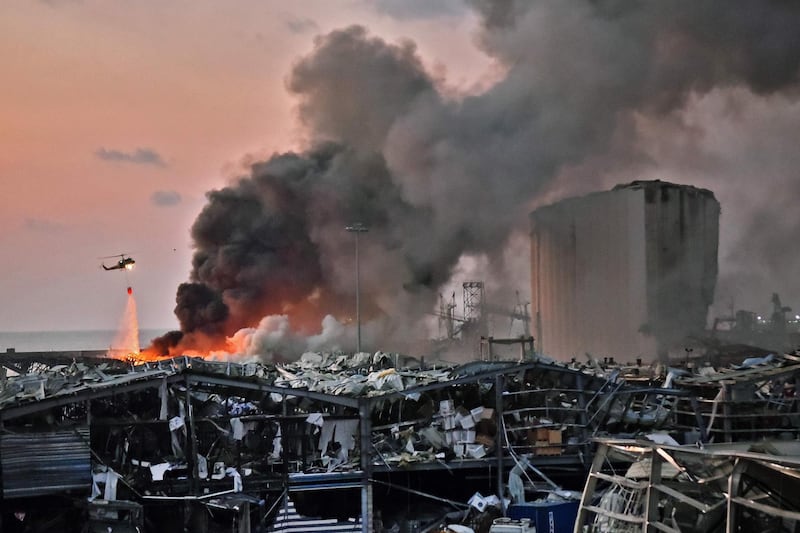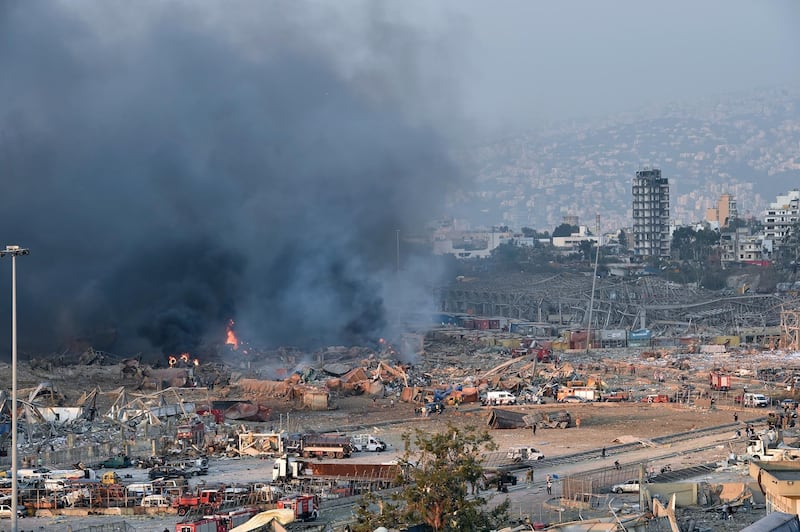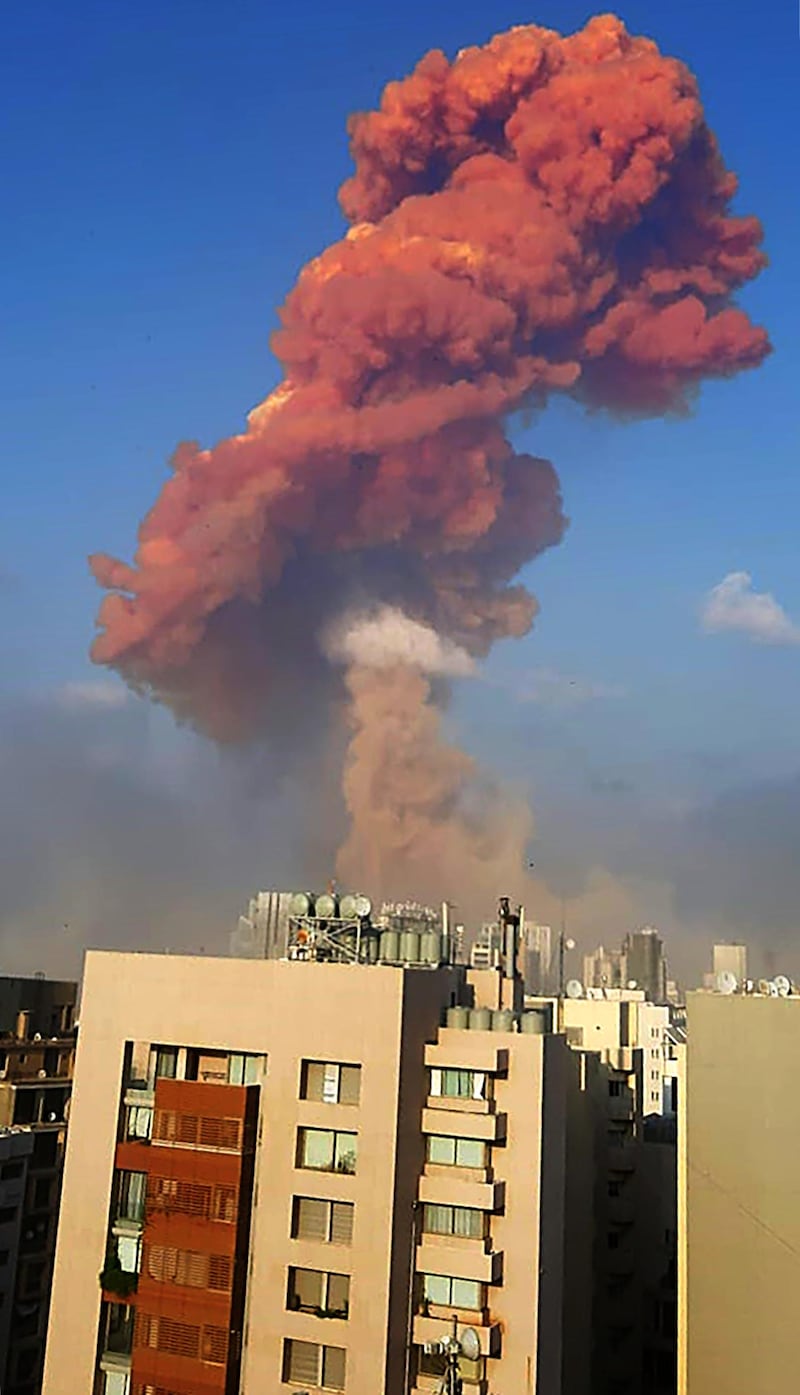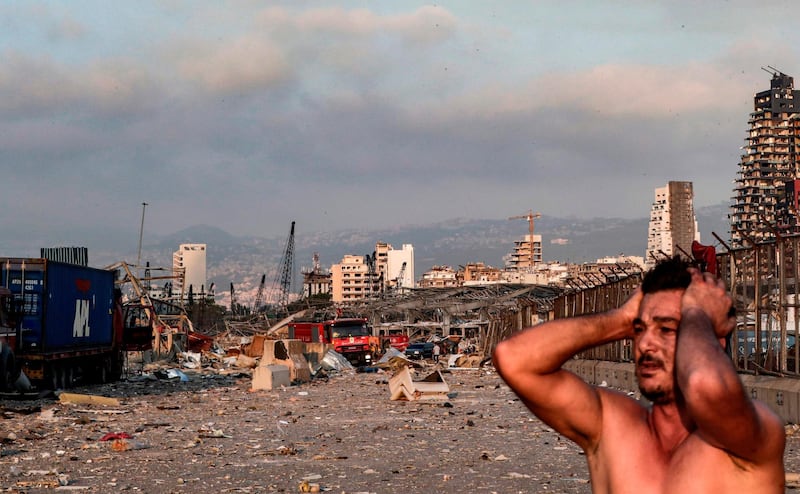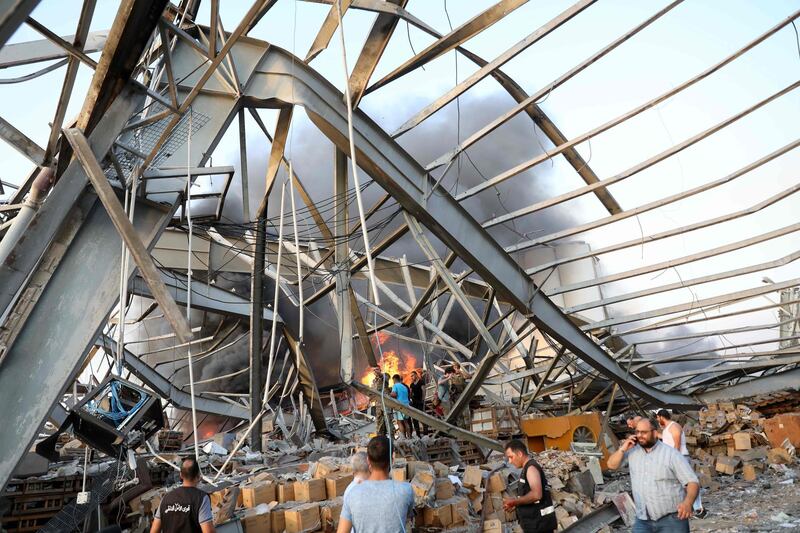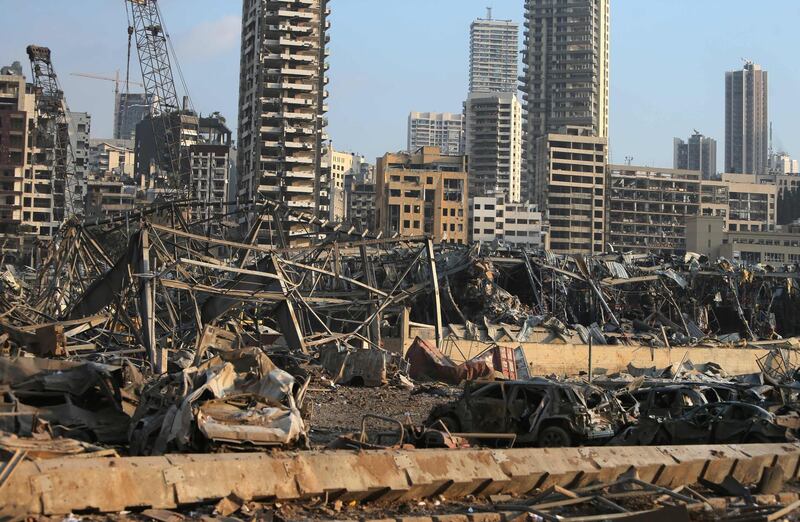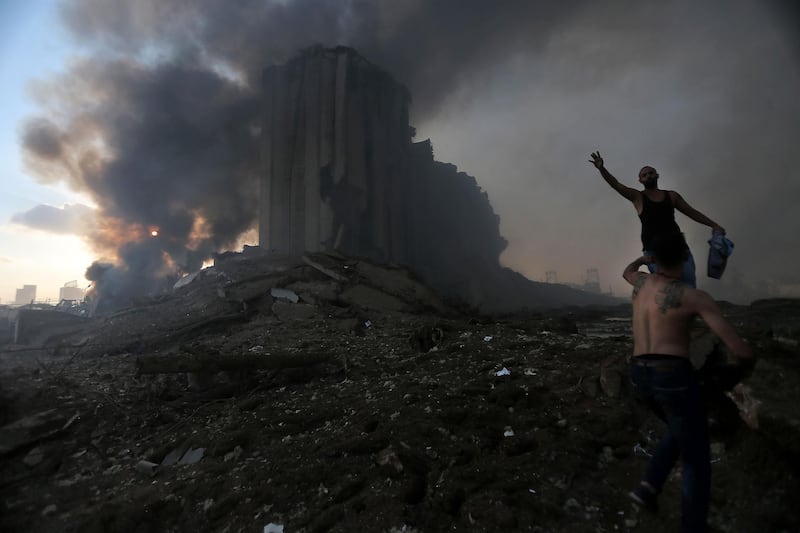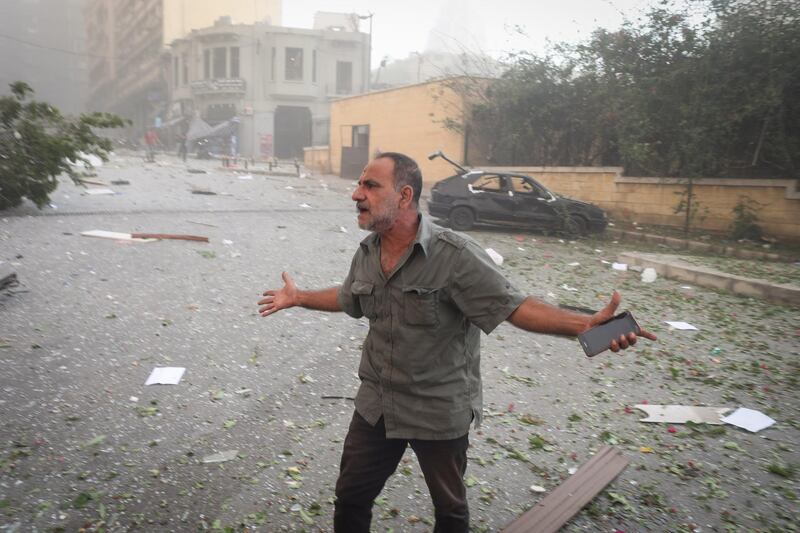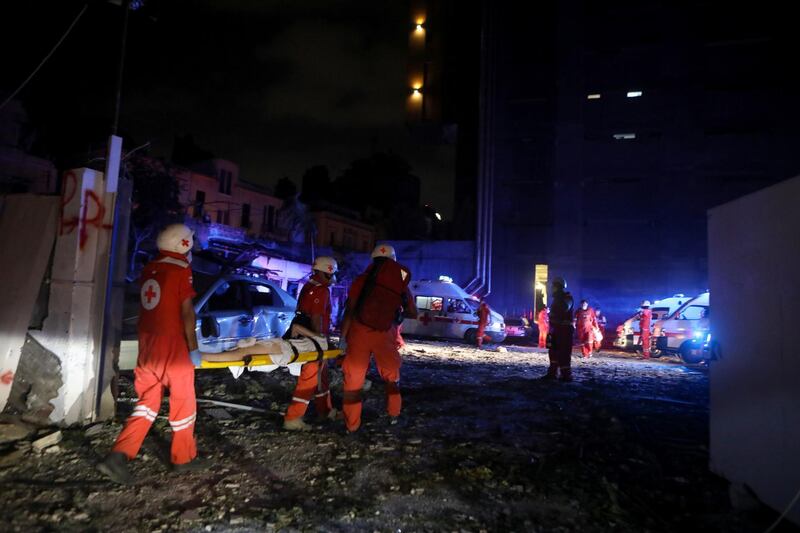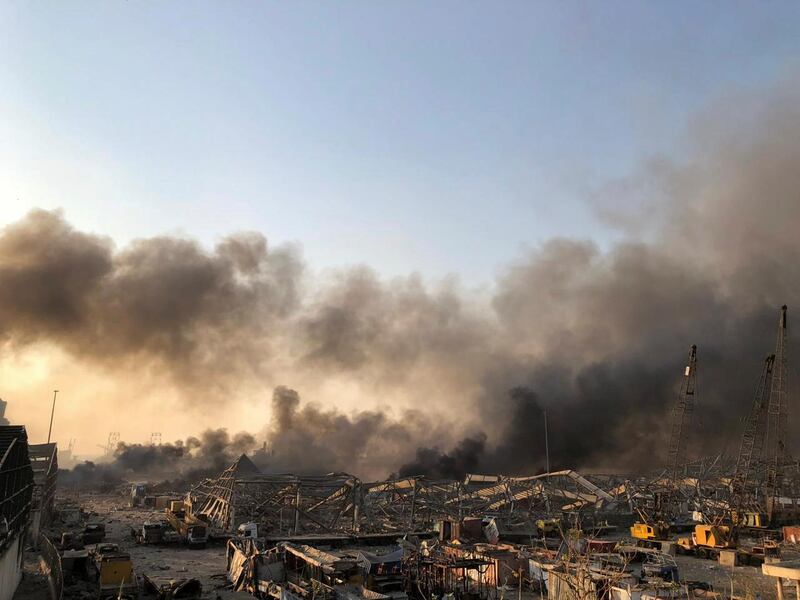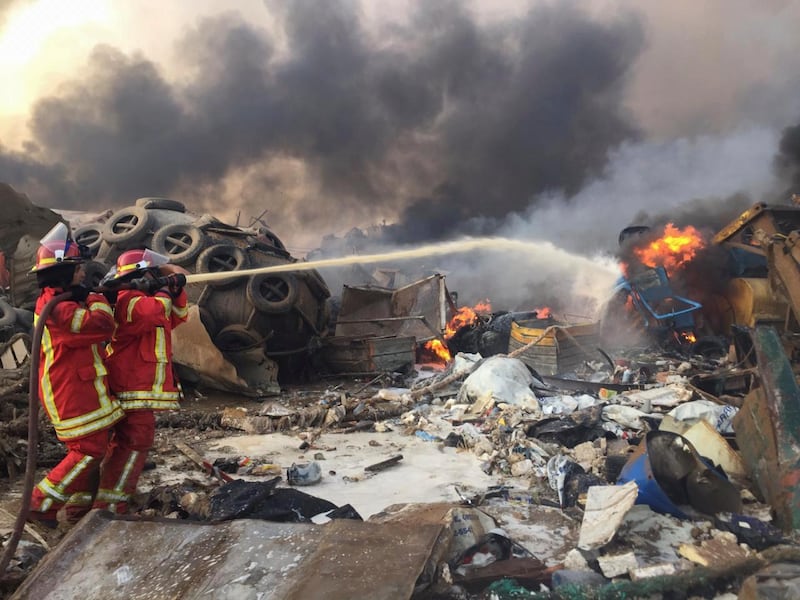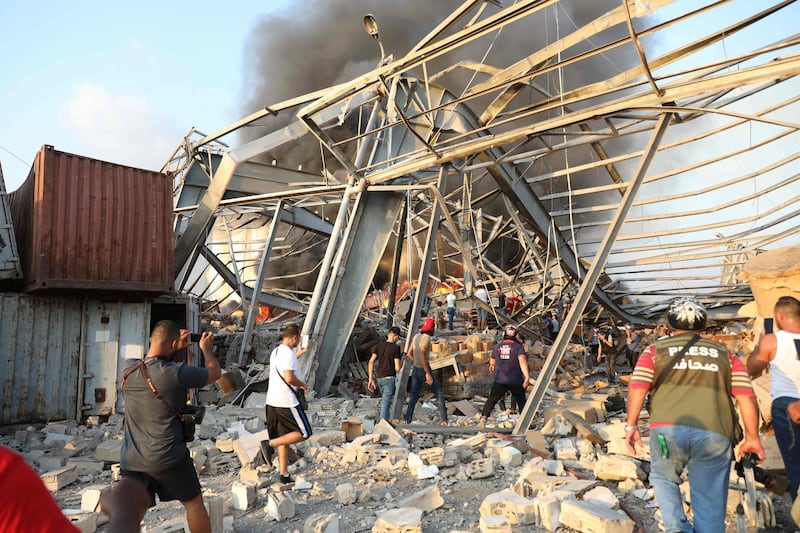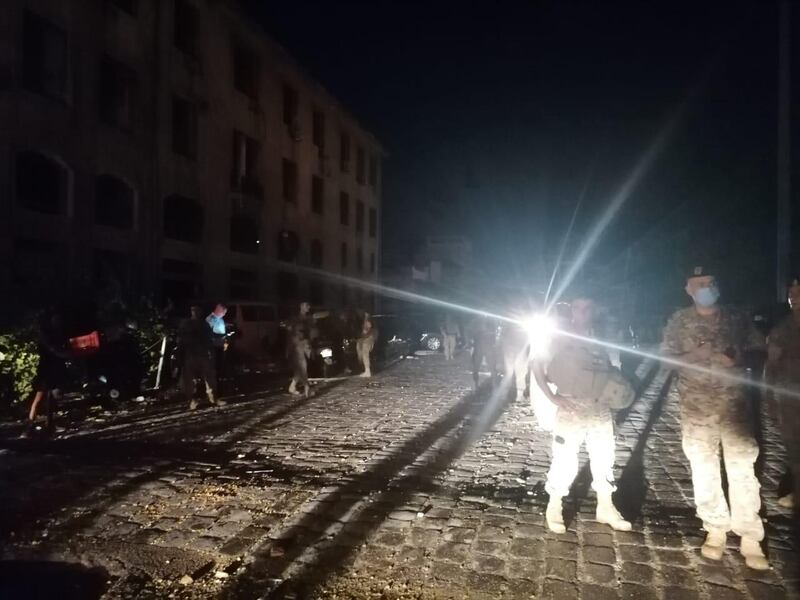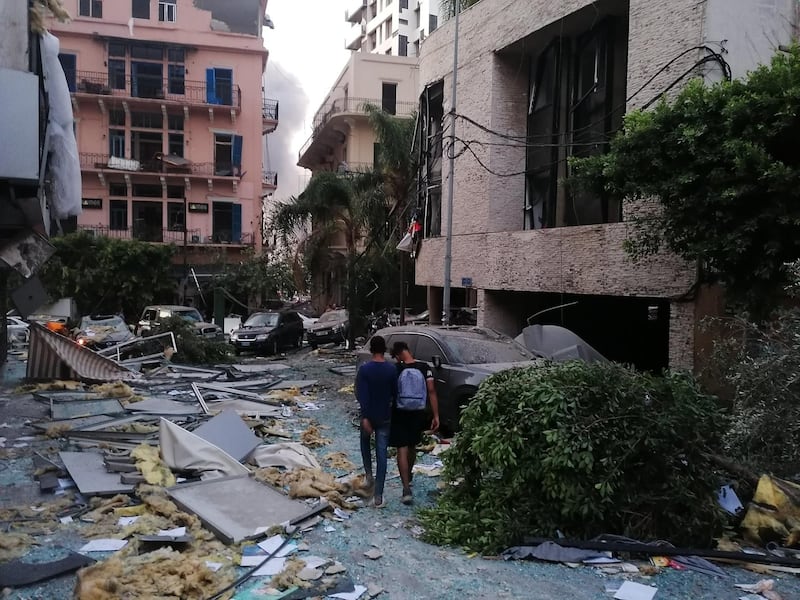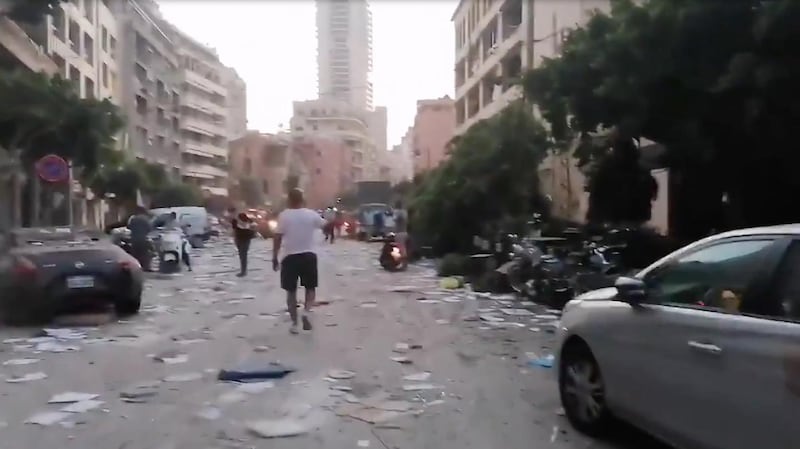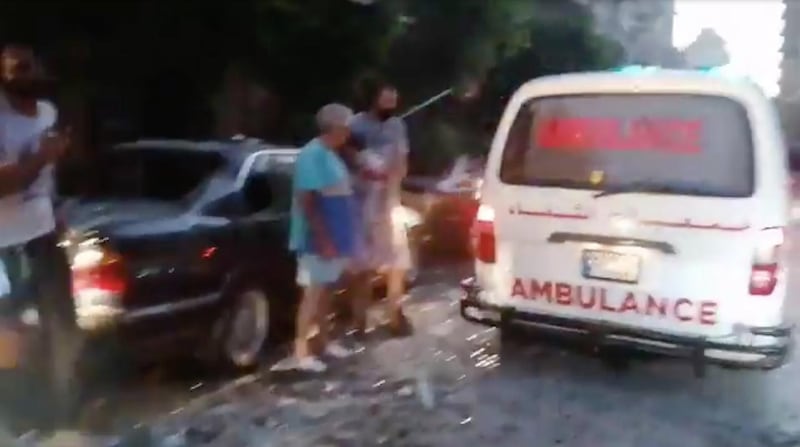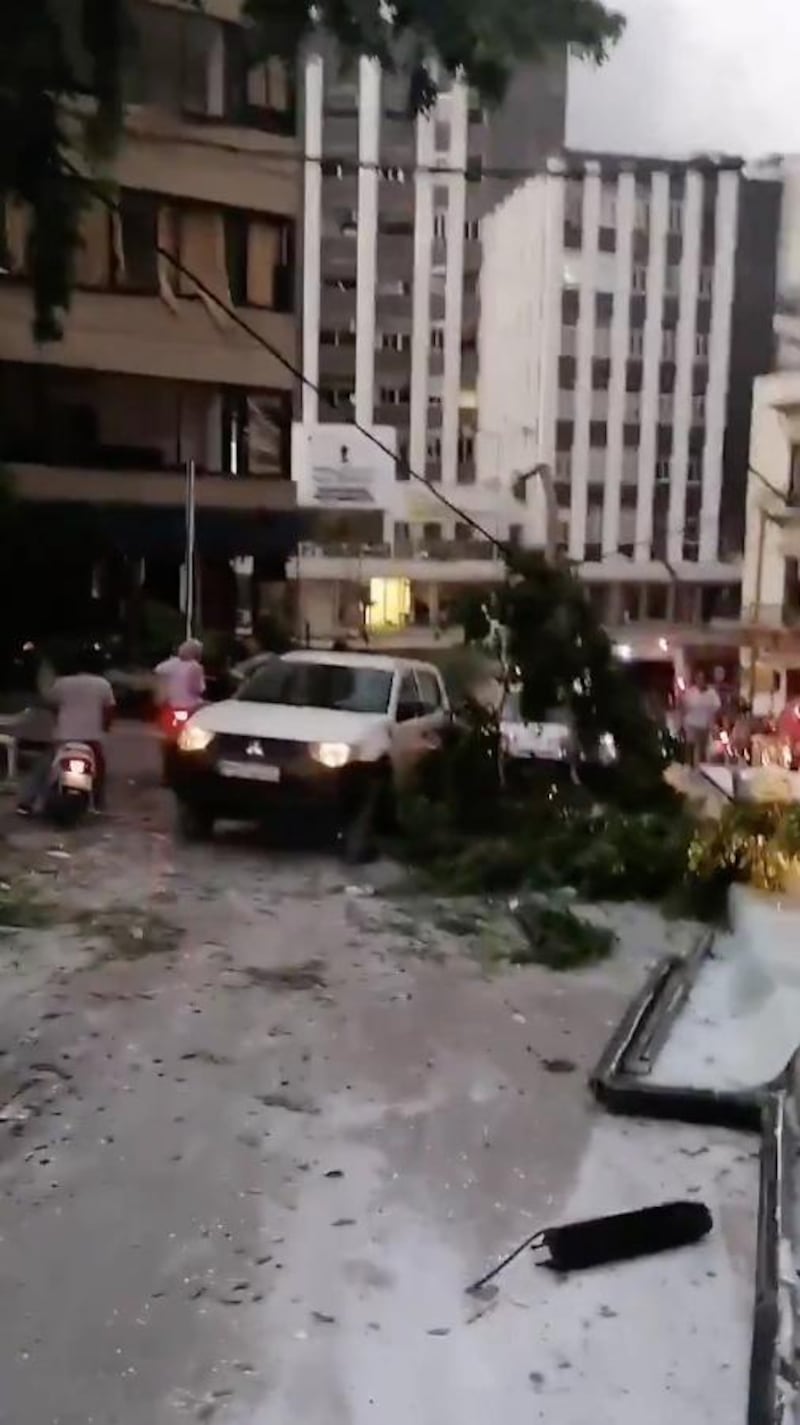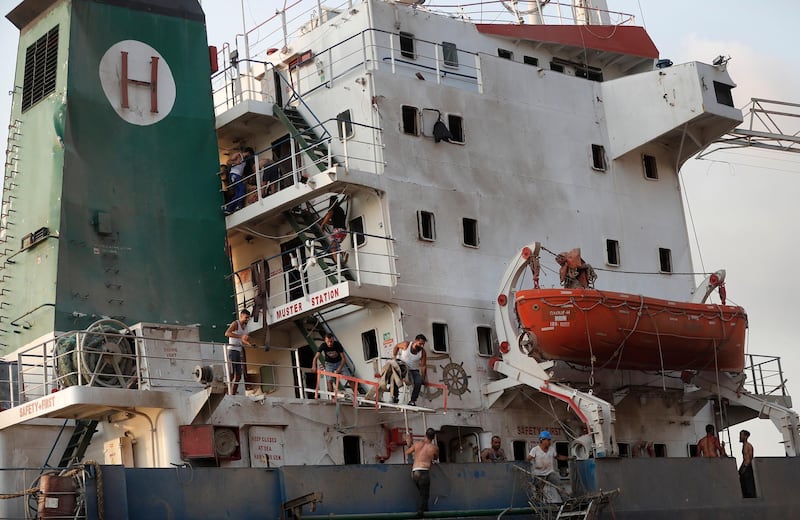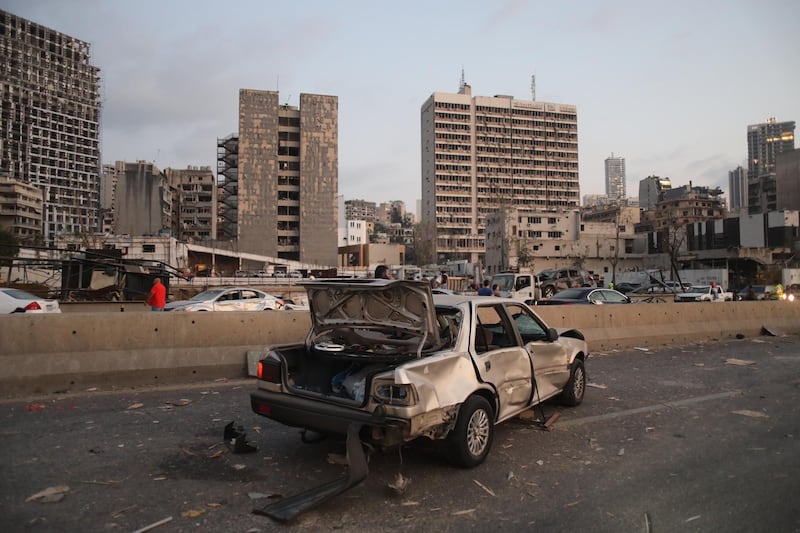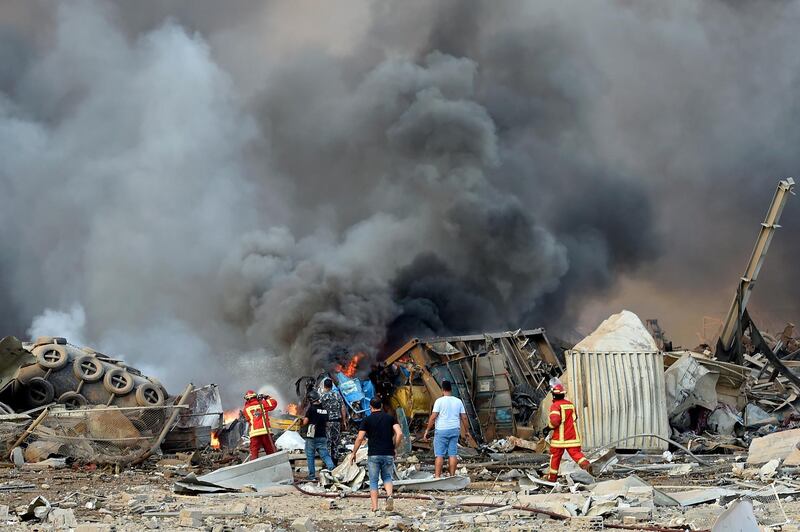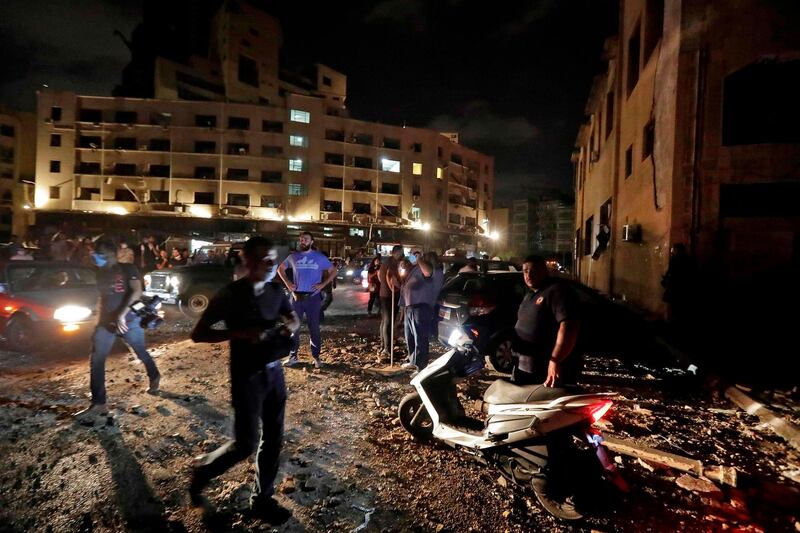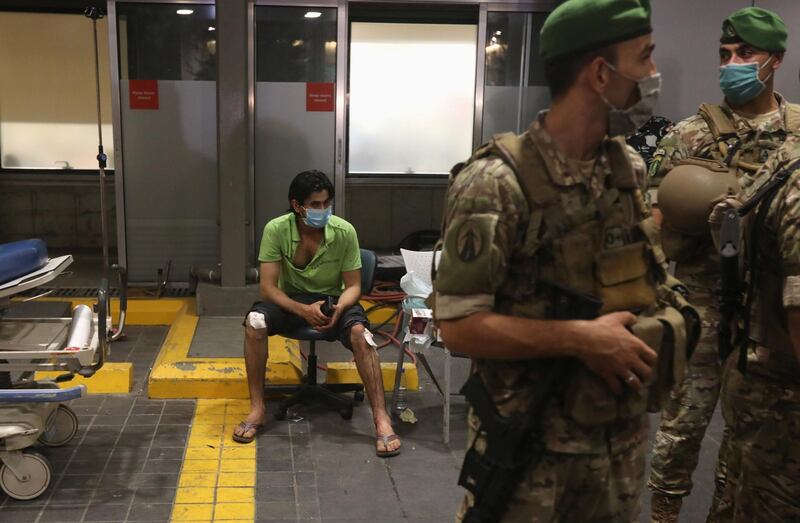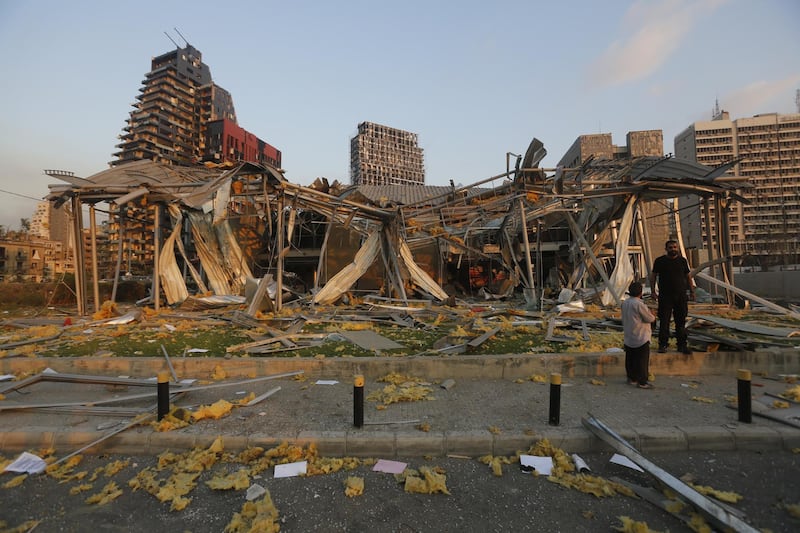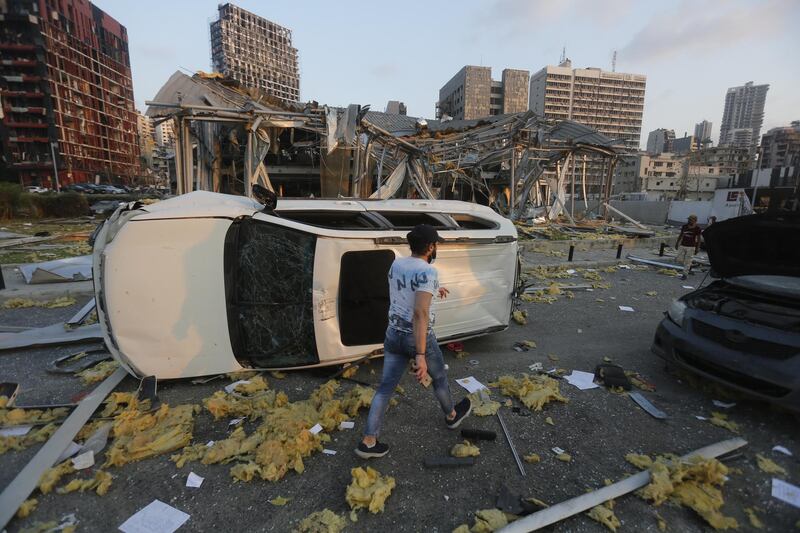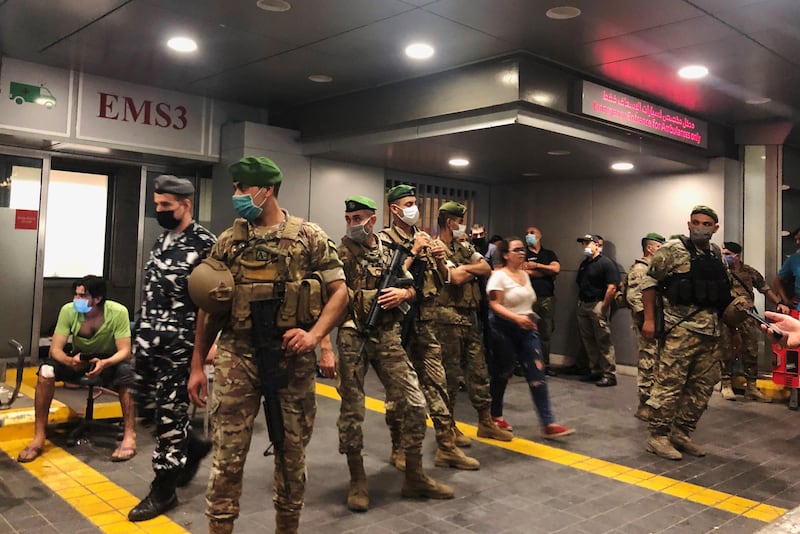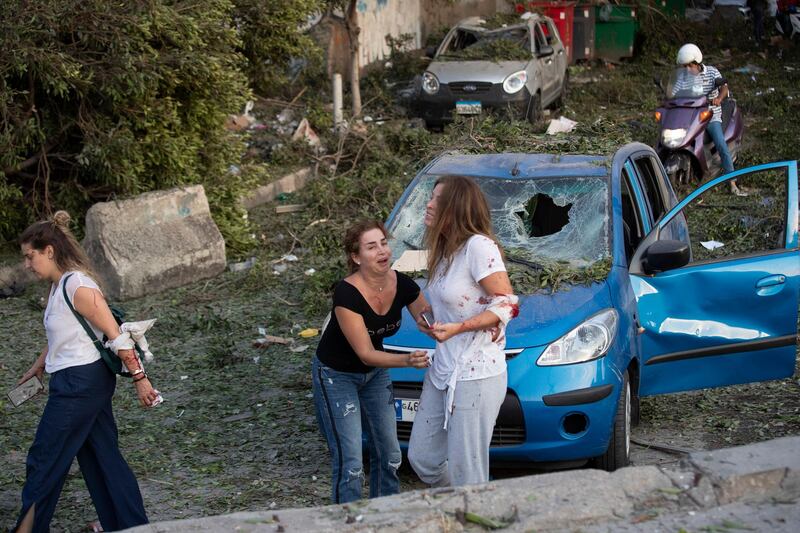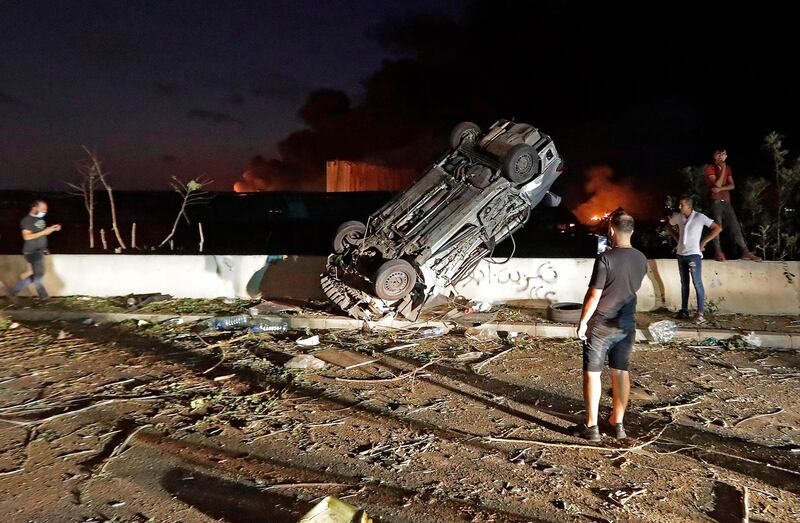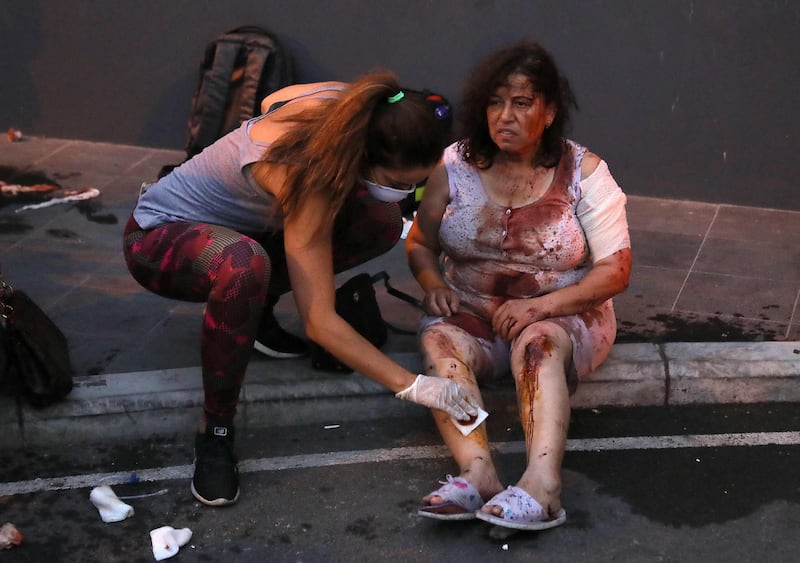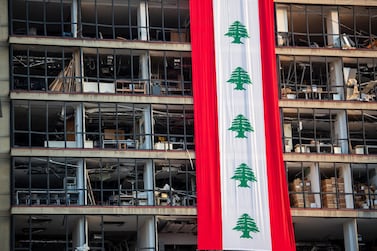Lebanese residents in the UAE watched on televisions and phones on Wednesday morning as the true scale of devastation caused by last night's explosion in Beirut's port became clear.
In the Lebanese capital, as daylight came, the streets were littered with shattered glass, homes were reduced to debris and the death toll climbed past 100, with thousands more injured.
“This is a humanitarian situation and Lebanon as a whole has fallen victim to this crisis,” said Mohammed Badreddine, a Lebanese photographer who lives in Abu Dhabi.
The 45-year-old said he had lost a distant relative in the blast, and feared more friends and family will suffer in the crisis that will follow.
Lebanon was already reeling from an economic and political crisis when Tuesday's blast happened. President Michel Aoun said it was caused by 2,750 tonnes of ammonium nitrate that had been stored unsafely in a warehouse for six years.
“We will suffer a major health and food crisis as a result; factories that produce medication have been destroyed," he said.
Mr Badreddine said he would offer his home in Beirut to anyone who had lost theirs, and said his siblings had gone to donate blood to local hospitals struggling to cope with the influx of wounded.
“Lebanon is known for its sectarianism, however, today everybody has set their political and religious backgrounds aside and they are working as one nation," he said.
“Today there is no difference between Mohammed or George we are all brothers in humanity that have been affected equally by this crisis."
In messages and calls, friends and family on the ground painted a grim picture of the situation on the ground.
Wounded seen walking away from Beirut explosion
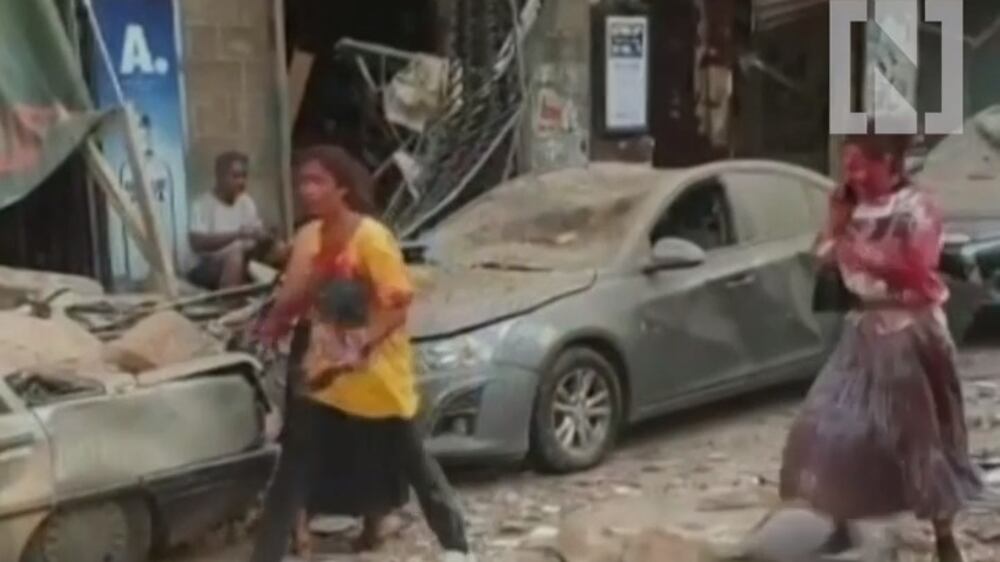
“Hospitals have been broken down and there is nowhere else to take the injured patients; the wounded are lying on bed sheets in car parking under the hospitals,” he said.
Osama Alshamaa, a Syrian engineer in Abu Dhabi whose relatives live in Beirut, said he was worried about the effect on his family's health.
“They are worried about the nitrate that circulated in the air after the explosion. This affects the breathing system and its long term effects are very dangerous," he said.
“The problem is this happened during the coronavirus period, and it is not possible for people to travel there to stand by their families.”
Muna Tamim, 35, a Palestinian-Canadian human resources executive who lives in Abu Dhabi, was visiting family in Beirut when the blast rocked the city.
"We freaked out, and the glass completely shattered in some people's houses and fell on them, including my mother's family [who live near the blast site]," she told The National.
"There are children stuck under cars they are trying to release them, and some people died; it was a very strong explosion.
"The glasses shattered and the pots were clattering in the kitchen, and my aunt was talking to me screaming over the phone as she saw them removing kids from under cars."
